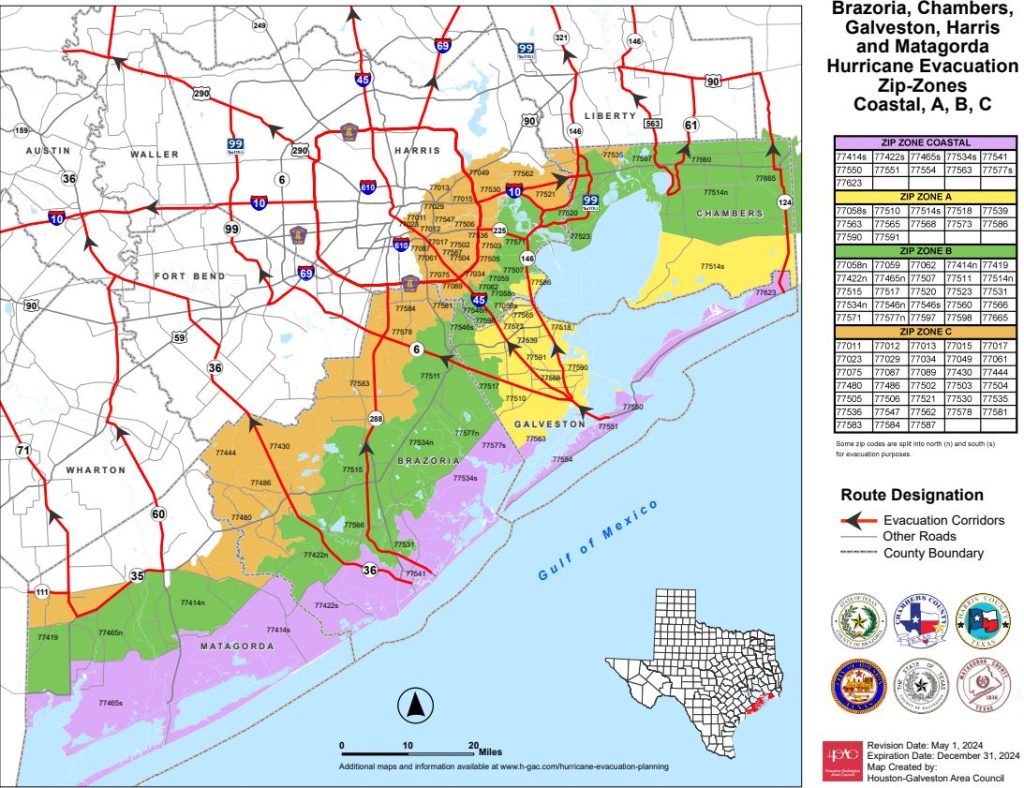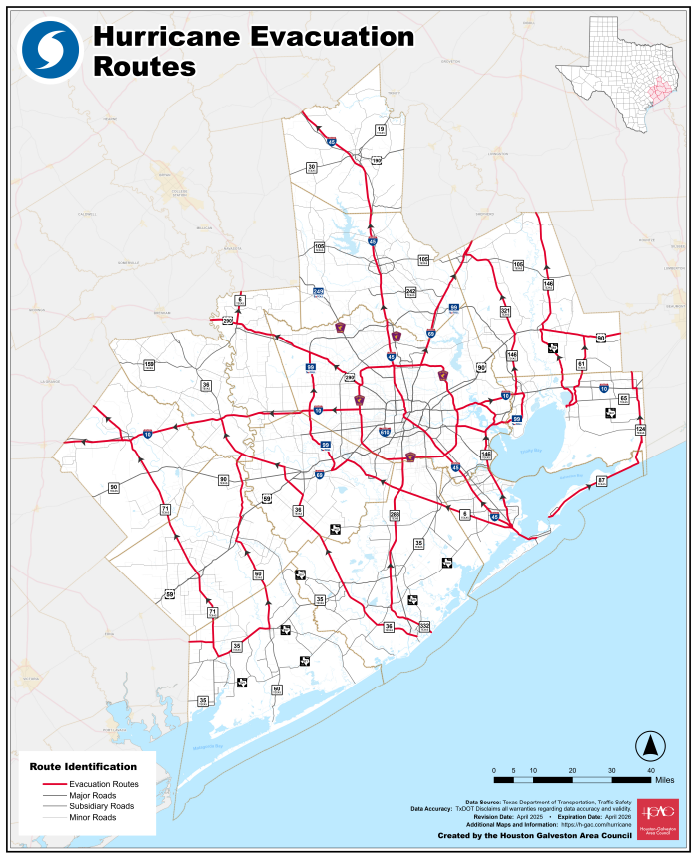Tropical storms and hurricanes are a significant threat to the Texas Gulf Coast. Many major storms have caused a lot of destruction in our area in the past and we should expect future significant weather events to impact our area.
Listen to local officials, monitor trusted sources, and register for AlertHouston to stay informed.
Have emergency supplies in place at home, at work, and in the car (blankets, water, extra clothing, first-aid kit, extra cell-phone charger, etc.) Visit our Preparedness Page for a full list of supplies for an emergency kit.
Shop for supplies for your emergency kit ahead of time. Don’t wait until stores are crowded and supplies are running low when a hurricane is in the Gulf.
Keep your gas tank at least half full during Hurricane Season.
Make a Plan for your household, including your pets, so that you and your family know what to do, where to go, and what you will need.
Establish a primary and secondary meeting point in case of evacuation as part of your plan.
Keep important documents in a waterproof container.
Make sure your insurance policies and documents are up to date. Make copies and keep them in a secure password-protected digital space.
Keep your cell phone charged and purchase backup charging devices to power electronics.
Cover windows with plywood and buy sandbags, if needed.
Know how to turn off/on your utilities.
If it becomes necessary to evacuate residents during a hurricane, authorities will issue evacuation orders by zip code zone or “zone.” Residents should become familiar with which zone they reside in.
Knowing your zone will help you better understand when and if you need to evacuate during a hurricane or other serious storm. It will also help you avoid unnecessary evacuation travel, thereby reducing highway congestion, easing overcrowding at local storm shelters, and boosting public safety. You should only evacuate if you live in a storm surge evacuation zone or are ordered by elected and emergency officials to evacuate. Visit the Houston-Galveston Area Council to download a detailed evacuation map and for more information.




